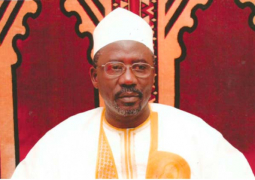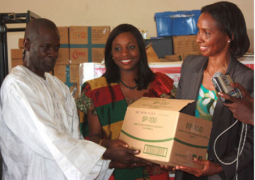The accused persons are Ensa Jarju, Ndey Touray, Adama Danso and Fatou Sonko.
They were charged with three counts of rash or negligent conduct, giving false information and official corruption.
In her testimony, Binta Bah, a housewife from Brikama Jamisa district, told the court that on 23 November 2013 she had stomach-ache, and called one Isatou to accompany her to the health center.
When she arrived there, she gave the accused persons her documents and the second accused, Ndey Touray, asked her to go out and walk around because it was not yet time for her to deliver.
While she was walking, her delivery time approached and she went to the labour room. The second accused again asked her to leave, as it was not yet time for her to deliver. At the time, the other accused persons were in the labour room.
Mrs Bah added that she was later admitted at the labour room and given a small bed. When she lay on the bed, her head was resting on the wall and her legs were on the ground.
She called them to come and help her during the delivery, but all of them ignored her. When she delivered, her baby fell on the floor.
The baby fell and cried once, and she again called the nurses. It was the 2nd accused who came and collected the baby. She did not know where she took the baby.
The 2nd accused later called Isatou, and told her that Binta gave birth to a baby boy, but had a stomach disease that has affected the child.
The witness said she told Isatou that whatever happened to the child was because he fell on the floor, during the delivery.
The 2nd accused, the witness further told the court, asked for her husband’s phone number, and told her husband that she delivered a baby boy.
She was later taken to the hospital in Banjul, where they told them that the baby could not make it. Isatou also told her the baby passed away.
They were about to board a taxi, and that was the time she informed her husband that the baby fell during delivery.
Her husband told her the nurse did not tell him that; all they told him was that she had a stomach disease that affected the child.
Her husband then said since the baby was dead, let them just go home. When they arrived home, the son of the landlady told his mother that Binta Bah gave birth, but the baby passed away.
The landlady came and asked, and she told her it was the fault of the nurses.
The landlady then said she would take legal action against them.
The landlady went to the police to report the matter, and returned to the house with the police to her house. They were taken with the child to Brikama police station.
She explained everything to the police, and was then taken to the hospital in Banjul, and later gave a statement to the police at the station.
Under cross-examination by defence counsel LK Mboge, she told the court that this was not her first time giving birth.
She had three children, and all of them were delivered in the hospital without any problem.
She is a Guinean; has lived in the Gambia for 28 years, and paid for the delivery of all those children.
She informed the court that it was on 23 November 2013, when she arrived at the Brikama health center, after the last prayer of the day.
“I was not alone there; I did not know whether they were waiting for delivery, and about three beds were empty at the time,” she said under cross-examination.
She denied the defence counsel’s assertion that she was given the small bed, because all the other beds were occupied at the time of her arrival.
She said it was the accused persons she found in the labour room.
At this juncture, the trial magistrate ordered the court to visit the health center, in order to ascertain the information given.
At the health centre, the magistrate then asked the witness to identify the labour room and bed where she delivered. She identified the labour room, but the small bed was nowhere to be found.
They returned to the court.
Hearing in the case continues on 26 March 2013.



